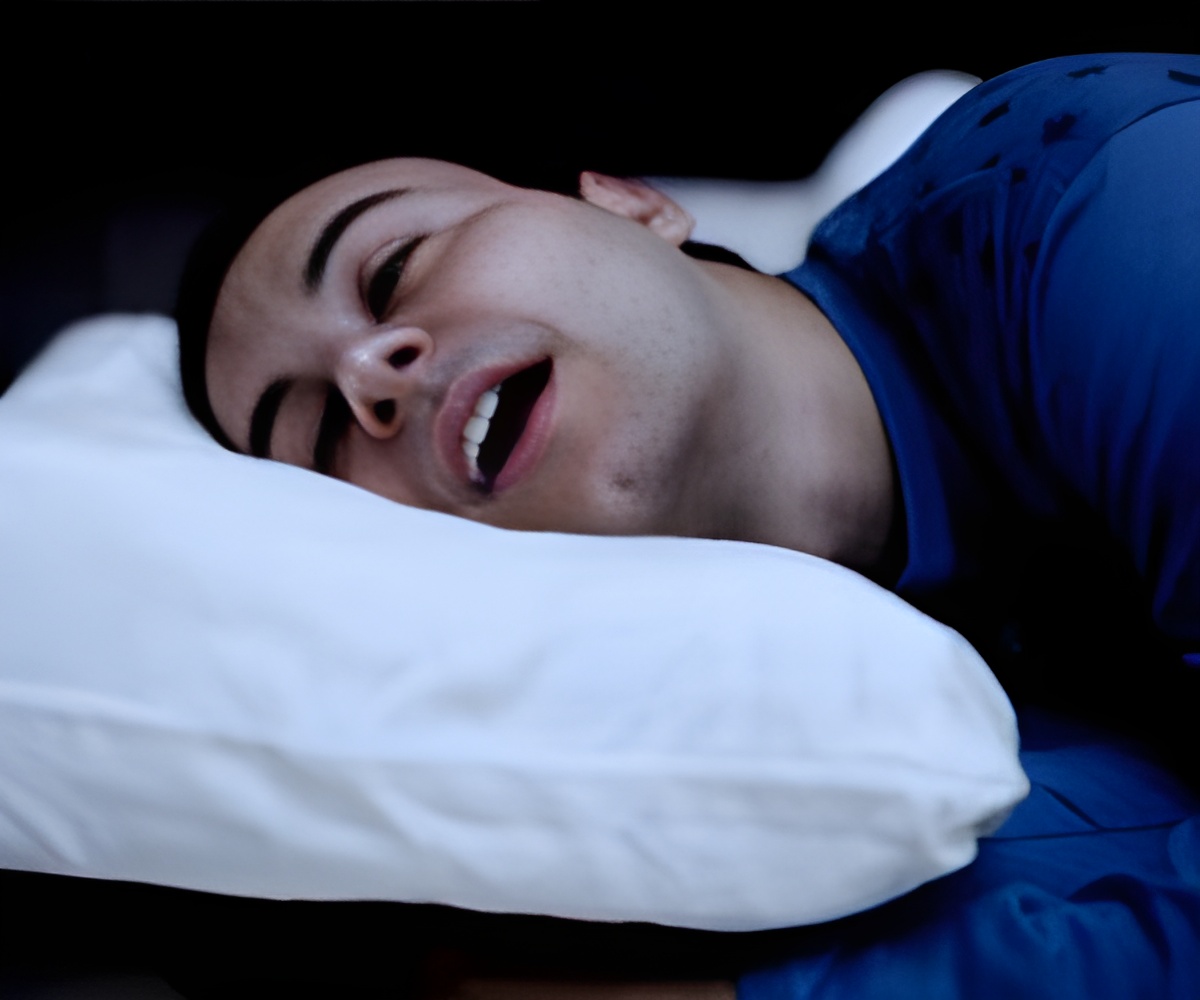Sleep apnea (sleep-disordered breathing) and snoring may increase the risk of sudden cardiac death among young athletes.

‘Young athletes who snore or have sleep-disordered breathing (sleep apnea) are at a higher risk of heart abnormalities.’
Read More..




The study also showed that the athletes who experience this problem are also more likely to have low levels of oxygen in their blood and higher pulse rates during the night, suggesting that athletes with sleep disordered breathing may be at risk of heart abnormalities.Read More..
The researchers say this study could indicate that sleep disordered breathing is a factor in the phenomenon of seemingly healthy young athletes dying from a sudden and unexplained heart attack.
Sleep disordered breathing (SDB) is characterized by abnormal respiratory patterns or pauses in breathing during sleep, ranging from snoring to sleep apnoea, where the airways close completely or partially many times during sleep. Having a high BMI, being over 40 years of age and having a large neck circumference are some of the common factors associated with SDB. If untreated, patients with SDB-related conditions face an increased risk of developing chronic diseases such as cardiovascular disease, heart failure and type 2 diabetes.
The study was led by Yoshitaka Iso, a cardiologist and Associate Professor at Showa University Research Institute for Sport and Exercise Sciences, Yokohama, Japan. He explained: "We wanted to investigate the prevalence of sleep disordered breathing in collision sport athletes, such as rugby or American-style football players, because we know that they usually have a higher BMI and larger neck circumference than athletes from other sports.
"We tend to assume that young, competitive athletes will not experience conditions like SDB, which are more common in people with a higher BMI and inactive lifestyles, but more research is needed to determine what may be contributing to sudden cardiac death in athletes, and SDB is a good candidate for this as it can affect the heart's normal functions."
Advertisement
The data showed that 18 (43%) of the athletes met the criteria for SDB, which means they experienced five or more pauses in breathing that lasted for at least 10 seconds, over a total sleeping time of more than three hours.
Advertisement
Professor Iso and his team then assessed the performance of each young man's heart and lungs at rest and during exercise, to check for cardiovascular abnormalities among athletes with and without SDB. These tests showed that resting heart-rate was higher among SDB athletes, and that SDB athletes experienced more incidences of extra or disruptive heartbeats than non-SDB athletes, further suggesting that SDB may be linked to heart abnormalities.
Professor Iso said: "Sleep disordered breathing was observed in 43 percent of the young athletes we assessed. This is a higher rate than we expected, and is higher still than the levels of SDB reported among middle-aged men from the general population of the US and Europe. Our data also showed that several potential warning signs, such as effects on the athletes' breathing and heart rates, occurred frequently among the athletes with SDB.
"Although none of the athletes in this study were found to have serious conditions yet, likely due to their young ages, we do not know how their conditions may worsen in the future due to associated cardiovascular consequences. Based on the link between SDB and abnormal heart functions that we observed in this group, we speculate that SDB could be a possible factor in the unexplained deaths of some young collision sport athletes, as it appears to be very prevalent but currently is not regularly screened for."
Professor Anita Simonds is a Consultant in Respiratory and Sleep Medicine at Royal Brompton and Harefield NHS Foundation Trust, UK and President Elect of the European Respiratory Society, and was not involved in the research. She said: "It is too early to conclude that sleep disordered breathing is a definite factor in sudden cardiac death of athletes, but these results provide food for thought on the ways that breathing disorders may affect the health of young, fit athletes.
"In this study the overall level of sleep disordered breathing was mild, but the results highlight that a sleep study to assess for the presence of sleep disordered breathing should be considered in the care of collision sport athletes, such as rugby or American-style football players, as it could help to identify those at risk of cardiovascular complications."
The researchers say that additional large studies are necessary to confirm their results and to determine the underlying mechanisms that lead to SDB, and note that a limitation of the study is that SDB assessment was only performed on a single night.
Source-Eurekalert















